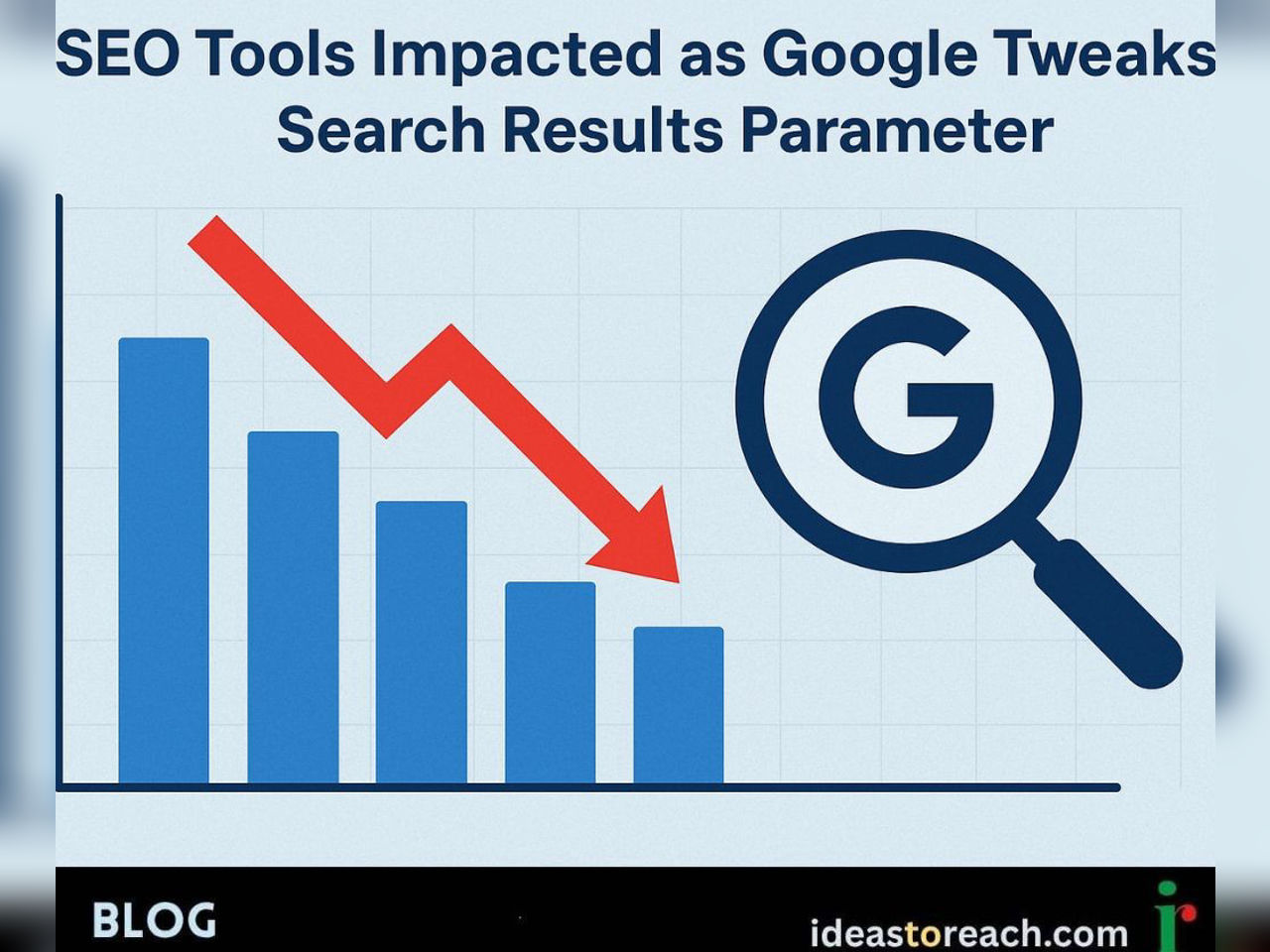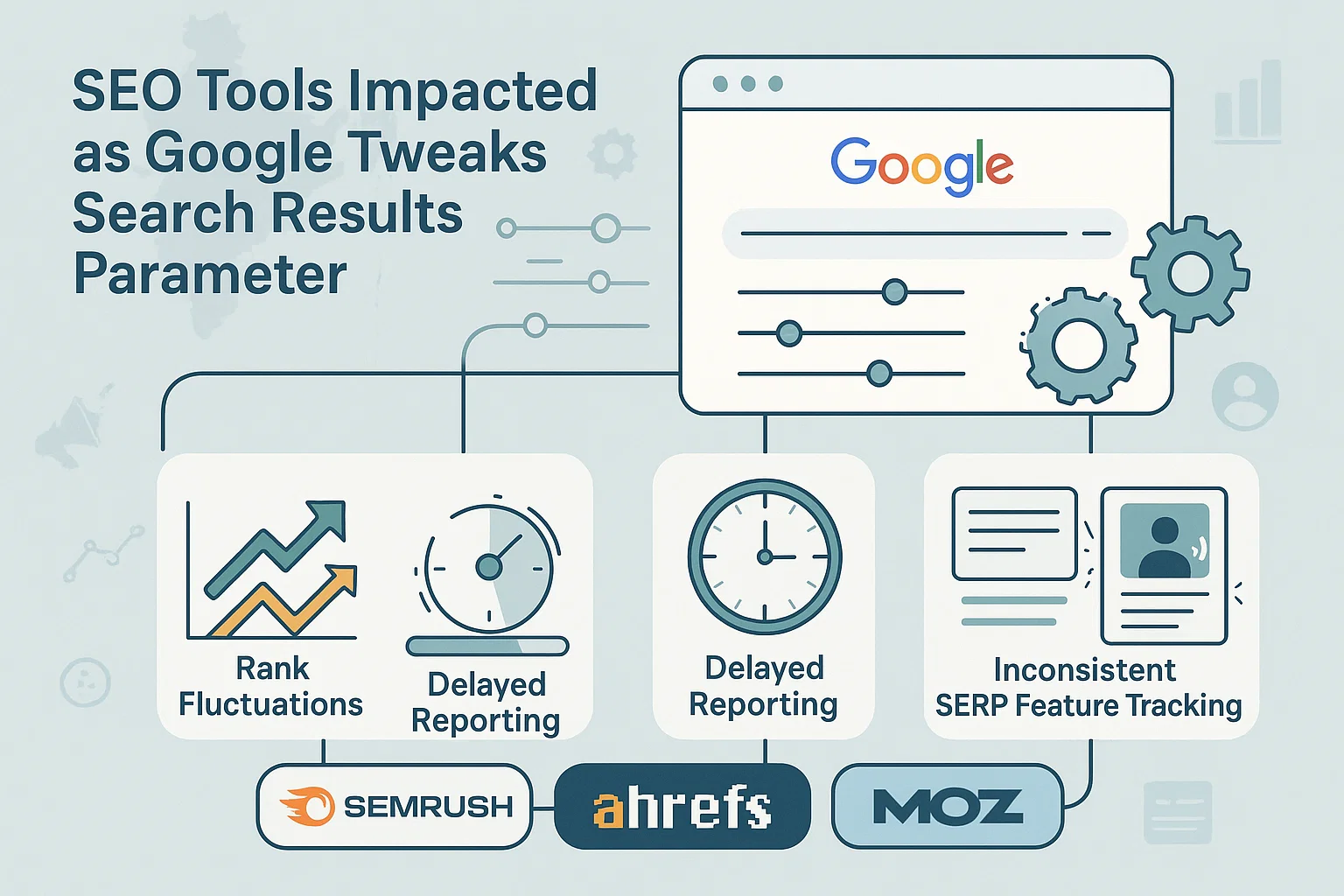
Google is constantly refining its search ecosystem, and the latest Google Search Parameter Update is no exception. This change is poised to affect how SEO tools track rankings and analyse SERP features, with implications for businesses and digital marketers across India. Understanding these updates is essential for SEO professionals to maintain accurate keyword tracking and optimise organic visibility effectively. For brands trying to stay competitive, it’s also worth exploring evolving AI search strategies for Google ranking as a complementary approach.
The Google Search Parameter Update refers to modifications in how Google structures and delivers search results data. These changes impact how third-party SEO tools collect and display metrics, including keyword positions, SERP features, and visibility. For SEO professionals, this update is significant because it can directly impact SEO ranking changes after the Google update, potentially altering reported rankings and analytical insights. Since authority matters more than ever, marketers must also factor in why E-E-A-T matters for Google rankings in 2025.
The impact of Google updates on SEO tools is significant. Many popular platforms, like SEMrush, Ahrefs, Moz, and other rank tracking software, depend on Google’s structured search parameters to fetch accurate data. The recent changes can result in:
Understanding how Google search parameter update affects SEO tools helps professionals adjust their strategies. For Indian digital marketers, combining Search Console insights with third-party platforms is crucial. Another way to target SEO strength is by ensuring a solid internal architecture with a guide to effective internal links that supports long-term authority building.

Not all SEO tools are affected equally. Rank tracking and keyword monitoring tools are the most impacted because they rely heavily on Google’s parameters. Platforms like SEMrush, Ahrefs, Moz, and others, widely used in India, may show discrepancies in SEO tools accuracy after Google updates.
Other affected tools include:
For businesses and SEO professionals in India, it’s essential to be aware of these limitations and adjust their reporting methods accordingly. Beyond tooling, keeping websites fresh and optimised also supports resilience. You also need to understand the right website update frequency for SEO.
The question of why Google parameter changes impact SEO reporting boils down to data reliability. When parameters change, the way SEO tools measure organic visibility and track keywords shifts, potentially causing errors. A keyword may have dropped in rankings, while its absolute SERP position remains stable. Misleading reports can affect SEO budgets, campaigns, and strategy decisions.
This is why digital marketing agencies in India should prioritise Google Search Console insights alongside third-party tools. More importantly, marketers must tie rankings to measurable outcomes. See how maximizing ROI from SEO rankings into business revenue for a more reliable ROI framework.
In 2025, Google search results updates introduce subtle changes to search result structuring, impacting how tools report keyword positions. For Indian-focused businesses, the key is to:
By understanding the latest Google algorithm updates effect, SEO professionals can continue to optimise effectively.
For SEO professionals, adapting to Google search changes requires a multi-pronged approach:
Implementing these best practices ensures that agencies can mitigate the accuracy of SEO tracking tools in India after a Google update and still deliver measurable results.
The most reliable SEO tools in India post-update include:
Combining these with manual verification enhances the accuracy of data reporting.
The update also highlights opportunities to target specific long-term queries, such as:
Strategically weaving these helps capture targeted search queries. The following are major takeaways for digital marketing in India:
The Google Search Parameter Update underscores the importance of flexibility in SEO strategies. With the impact of Google updates on SEO tools, digital marketers must embrace Search Console insights in combination with SEMrush, Moz, and Ahrefs. By understanding how the update impacts reporting and by leveraging long-tail keyword strategies, businesses in India and beyond can maintain accuracy, organic visibility, and ROI despite constant algorithm changes.
Google’s search parameter update alters the structure of search data. Since SEO tools rely on these parameters, even minor tweaks can disrupt keyword tracking, SERP visibility, and ranking accuracy, making it critical for SEO professionals to adapt quickly.
The update affects SEO tracking in India, causing inconsistent rankings and visibility reports in third-party tools. Digital marketing agencies in India should rely more on Google Search Console insights and cross-check data from multiple SEO tools to ensure accurate campaign performance reporting.
The SEO tools most impacted are rank tracking and keyword monitoring platforms, such as SEMrush, Ahrefs, Moz, and similar tools, which are widely used in India. These tools rely on Google’s parameters to fetch keyword rankings and SERP snapshots. With the update, users may notice fluctuations in their rankings, missing SERP features, or delayed data.
SEO professionals should rely on Google Search Console, validate results across multiple SEO tools, and prioritise key metrics such as traffic trends, conversions, and engagement. Staying updated with Google Search Central ensures better adaptation and minimizes disruption in performance reporting.
Yes, the update affects how SEO tools report keyword rankings and SERP (Search Engine Results Page) features. While Google's search results remain unchanged, reporting tools may exhibit fluctuations. Therefore, focusing on long-term trends and traffic insights is more reliable.